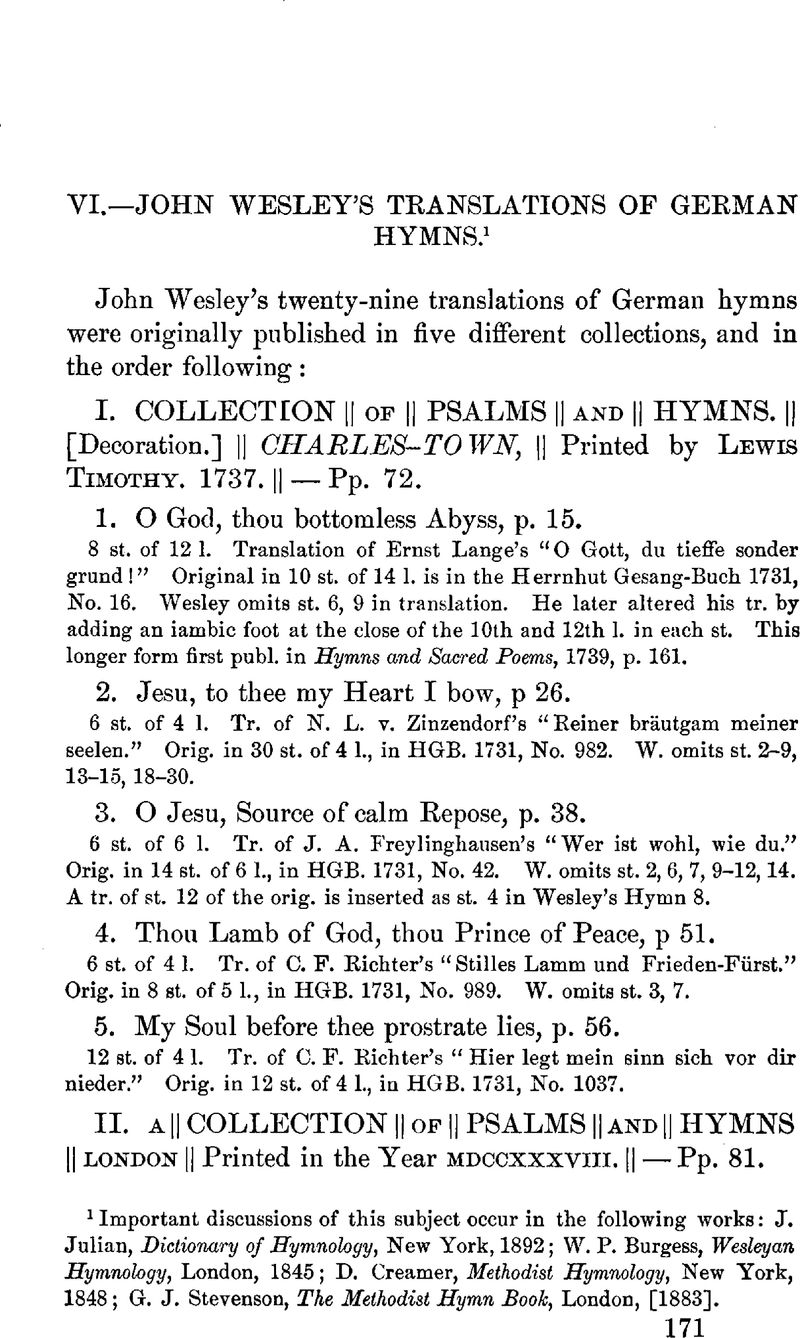No CrossRef data available.
Article contents
VI.—John Wesley's Translations of German Hymns
Published online by Cambridge University Press: 02 December 2020
Abstract

- Type
- Other
- Information
- Copyright
- Copyright © Modern Language Association of America, 1896
References
1 Important discussions of this subject occur in the following works: J. Julian, Dictionary of Hymnology, New York, 1892; W. P. Burgess, Wesleyan Hymnology, London, 1845; D. Creamer, Methodist Hymnology, New York, 1848; G. J. Stevenson, The Methodist Hymn Book, London, [1883].
1 Wesley's Journal. Wesley's Works. N. Y.: Mason and Lane, 1840. III, 14.
1 Rubric 13, A, No. 17.
1 Works, III, 32.
2 Tyerman, I, 211.
3 Concerning Timothy (or Timothée) and his press, v. Thomas, History of Printing in America, 2, 155.
4 Moore's Life of Wesley, I, 285.
1 Tyerman, Life of Wesley, I, 155.
1 There is great confusion in citing the three volumes last mentioned, and their subsequent reprints. It is perfectly unilluminative, for instance, to refer to Hymns and Sacred Poems, second edition, unless one knows which Hymns and Sacred Poems is meant.
2 Journal of this date.
3 Martin Luther and other Essays. Boston, 1888, p. 38.
1 At the present time centos of parts of different hymns, arranged to form a special connected service, are common in Moravian worship. I am inclined to think that Wesley made this hymn by translating from such a service.
1 Tyerman, I, 297.
1 That Wesley's objection to this feature lay in his personal taste, and not merely in the necessities of English verse, is shown by his rejecting some of Charles Wesley's hymns on the same ground. Burgess, Wesleyan Hymnology, p. 73.
2 In one case, the stanza-form of the original (No. 26) is somewhat doubtful. All the hymns are printed as solid prose in German. In the estimate, two half-stanzas in hymn 8 are reckoned as one stanza.
1 On Knowing Christ after the Flesh, 1789. Works3 7, 293.
1 Ps. and H. 1737, p. 5.
1 Wackernagel, Das deutsche Kirchenlied, I, 192.


